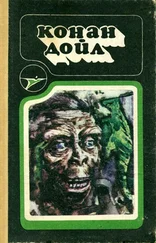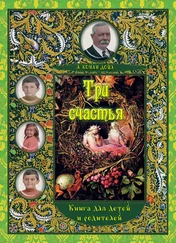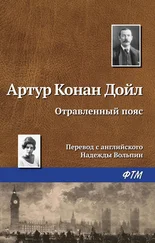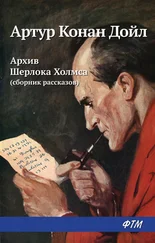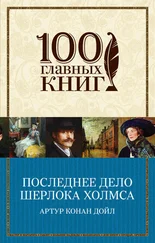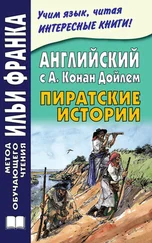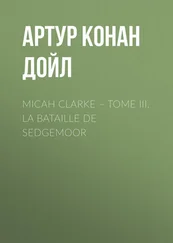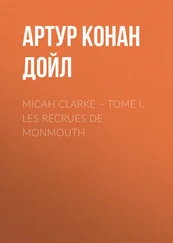Артур Дойл - Micah Clarke
Здесь есть возможность читать онлайн «Артур Дойл - Micah Clarke» — ознакомительный отрывок электронной книги совершенно бесплатно, а после прочтения отрывка купить полную версию. В некоторых случаях можно слушать аудио, скачать через торрент в формате fb2 и присутствует краткое содержание. Жанр: foreign_antique, foreign_prose, на английском языке. Описание произведения, (предисловие) а так же отзывы посетителей доступны на портале библиотеки ЛибКат.
- Название:Micah Clarke
- Автор:
- Жанр:
- Год:неизвестен
- ISBN:нет данных
- Рейтинг книги:3 / 5. Голосов: 1
-
Избранное:Добавить в избранное
- Отзывы:
-
Ваша оценка:
- 60
- 1
- 2
- 3
- 4
- 5
Micah Clarke: краткое содержание, описание и аннотация
Предлагаем к чтению аннотацию, описание, краткое содержание или предисловие (зависит от того, что написал сам автор книги «Micah Clarke»). Если вы не нашли необходимую информацию о книге — напишите в комментариях, мы постараемся отыскать её.
Micah Clarke — читать онлайн ознакомительный отрывок
Ниже представлен текст книги, разбитый по страницам. Система сохранения места последней прочитанной страницы, позволяет с удобством читать онлайн бесплатно книгу «Micah Clarke», без необходимости каждый раз заново искать на чём Вы остановились. Поставьте закладку, и сможете в любой момент перейти на страницу, на которой закончили чтение.
Интервал:
Закладка:
The matter was too serious, however, to be hushed up. The sudden chill set up some manner of disturbance in the bottle of sack which the Vicar had just been drinking with the town clerk, and an attack of gout set in which laid him on his back for a fortnight. Meanwhile an examination of the bridge had shown that it had been sawn across, and an inquiry traced the matter to Mr. Chillingfoot’s boarders. To save a wholesale expulsion of the school from the town, I was forced to acknowledge myself as both the inventor and perpetrator of the deed. Chillingfoot was entirely in the power of the Vicar, so he was forced to read me a long homily in public – which he balanced by an affectionate leave-taking in private – and to expel me solemnly from the school. I never saw my old master again, for he died not many years afterwards; but I hear that his second son William is still carrying on the business, which is larger and more prosperous than of old. His eldest son turned Quaker and went out to Penn’s settlement, where he is reported to have been slain by the savages.
This adventure shocked my dear mother, but it found great favour in the eyes of my father, who laughed until the whole village resounded with his stentorian merriment. It reminded him, he said, of a similar stratagem executed at Market Drayton by that God-fearing soldier Colonel Pride, whereby a captain and three troopers of Lunsford’s own regiment of horse had been drowned, and many others precipitated into a river, to the great glory of the true Church and to the satisfaction of the chosen people. Even of the Church folk many were secretly glad at the misfortune which had overtaken the Vicar, for his pretensions and his pride had made him hated throughout the district.
By this time I had grown into a sturdy, broad-shouldered lad, and every month added to my strength and my stature. When I was sixteen I could carry a bag of wheat or a cask of beer against any man in the village, and I could throw the fifteen-pound putting-stone to a distance of thirty-six feet, which was four feet further than could Ted Dawson, the blacksmith. Once when my father was unable to carry a bale of skins out of the yard, I whipped it up and bare it away upon my shoulders. The old man would often look gravely at me from under his heavy thatched eyebrows, and shake his grizzled head as he sat in his arm-chair puffing his pipe. ‘You grow too big for the nest, lad,’ he would say. ‘I doubt some of these days you’ll find your wings and away!’ In my heart I longed that the time would come, for I was weary of the quiet life of the village, and was anxious to see the great world of which I had heard and read so much. I could not look southward without my spirit stirring within me as my eyes fell upon those dark waves, the white crests of which are like a fluttering signal ever waving to an English youth and beckoning him to some unknown but glorious goal.
Chapter III. Of Two Friends of my Youth
I fear, my children, that you will think that the prologue is over long for the play; but the foundations must be laid before the building is erected, and a statement of this sort is a sorry and a barren thing unless you have a knowledge of the folk concerned. Be patient, then, while I speak to you of the old friends of my youth, some of whom you may hear more of hereafter, while others remained behind in the country hamlet, and yet left traces of our early intercourse upon my character which might still be discerned there.
Foremost for good amongst all whom I knew was Zachary Palmer, the village carpenter, a man whose aged and labour-warped body contained the simplest and purest of spirits. Yet his simplicity was by no means the result of ignorance, for from the teachings of Plato to those of Hobbes there were few systems ever thought out by man which he had not studied and weighed. Books were far dearer in my boyhood than they are now, and carpenters were less well paid, but old Palmer had neither wife nor child, and spent little on food or raiment. Thus it came about that on the shelf over his bed he had a more choice collection of books – few as they were in number – than the squire or the parson, and these books he had read until he not only understood them himself, but could impart them to others.
This white-bearded and venerable village philosopher would sit by his cabin door upon a summer evening, and was never so pleased as when some of the young fellows would slip away from their bowls and their quoit-playing in order to lie in the grass at his feet, and ask him questions about the great men of old, their words and their deeds. But of all the youths I and Reuben Lockarby, the innkeeper’s son, were his two favourites, for we would come the earliest and stop the latest to hear the old man talk. No father could have loved his children better than he did us, and he would spare no pains to get at our callow thoughts, and to throw light upon whatever perplexed or troubled us. Like all growing things, we had run our heads against the problem of the universe. We had peeped and pryed with our boyish eyes into those profound depths in which the keenest-sighted of the human race had seen no bottom. Yet when we looked around us in our own village world, and saw the bitterness and rancour which pervaded every sect, we could not but think that a tree which bore such fruit must have something amiss with it. This was one of the thoughts unspoken to our parents which we carried to good old Zachary, and on which he had much to say which cheered and comforted us.
‘These janglings and wranglings,’ said he, ‘are but on the surface, and spring from the infinite variety of the human mind, which will ever adapt a creed to suit its own turn of thought. It is the solid core that underlies every Christian creed which is of importance. Could you but live among the Romans or the Greeks, in the days before this new doctrine was preached, you would then know the change that it has wrought in the world. How this or that text should be construed is a matter of no moment, however warm men may get over it. What is of the very greatest moment is, that every man should have a good and solid reason for living a simple, cleanly life. This the Christian creed has given us.’
‘I would not have you be virtuous out of fear,’ he said upon another occasion. ‘The experience of a long life has taught me, however, that sin is always punished in this world, whatever may come in the next. There is always some penalty in health, in comfort, or in peace of mind to be paid for every wrong. It is with nations as it is with individuals. A book of history is a book of sermons. See how the luxurious Babylonians were destroyed by the frugal Persians, and how these same Persians when they learned the vices of prosperity were put to the sword by the Greeks. Read on and mark how the sensual Greeks were trodden down by the more robust and hardier Romans, and finally how the Romans, having lost their manly virtues, were subdued by the nations of the north. Vice and destruction came ever hand in hand. Thus did Providence use each in turn as a scourge wherewith to chastise the follies of the other. These things do not come by chance. They are part of a great system which is at work in your own lives. The longer you live the more you will see that sin and sadness are never far apart, and that no true prosperity can exist away from virtue.’
A very different teacher was the sea-dog Solomon Sprent, who lived in the second last cottage on the left-hand side of the main street of the village. He was one of the old tarpaulin breed, who had fought under the red cross ensign against Frenchman, Don, Dutchman, and Moor, until a round shot carried off his foot and put an end to his battles for ever. In person he was thin, and hard, and brown, as lithe and active as a cat, with a short body and very long arms, each ending in a great hand which was ever half closed as though shutting on a rope. From head to foot he was covered with the most marvellous tattooings, done in blue, red, and green, beginning with the Creation upon his neck and winding up with the Ascension upon his left ankle. Never have I seen such a walking work of art. He was wont to say that had he been owned and his body cast up upon some savage land, the natives might have learned the whole of the blessed gospel from a contemplation of his carcass. Yet with sorrow I must say that the seaman’s religion appeared to have all worked into his skin, so that very little was left for inner use. It had broken out upon the surface, like the spotted fever, but his system was clear of it elsewhere. He could swear in eleven languages and three-and-twenty dialects, nor did he ever let his great powers rust for want of practice. He would swear when he was happy or when he was sad, when he was angry or when he was loving, but this swearing was so mere a trick of speech, without malice or bitterness, that even my father could hardly deal harshly with the sinner. As time passed, however, the old man grew more sober and more thoughtful, until in his latter days he went back to the simple beliefs of his childhood, and learned to fight the devil with the same steady courage with which he had faced the enemies of his country.
Читать дальшеИнтервал:
Закладка:
Похожие книги на «Micah Clarke»
Представляем Вашему вниманию похожие книги на «Micah Clarke» списком для выбора. Мы отобрали схожую по названию и смыслу литературу в надежде предоставить читателям больше вариантов отыскать новые, интересные, ещё непрочитанные произведения.
Обсуждение, отзывы о книге «Micah Clarke» и просто собственные мнения читателей. Оставьте ваши комментарии, напишите, что Вы думаете о произведении, его смысле или главных героях. Укажите что конкретно понравилось, а что нет, и почему Вы так считаете.


